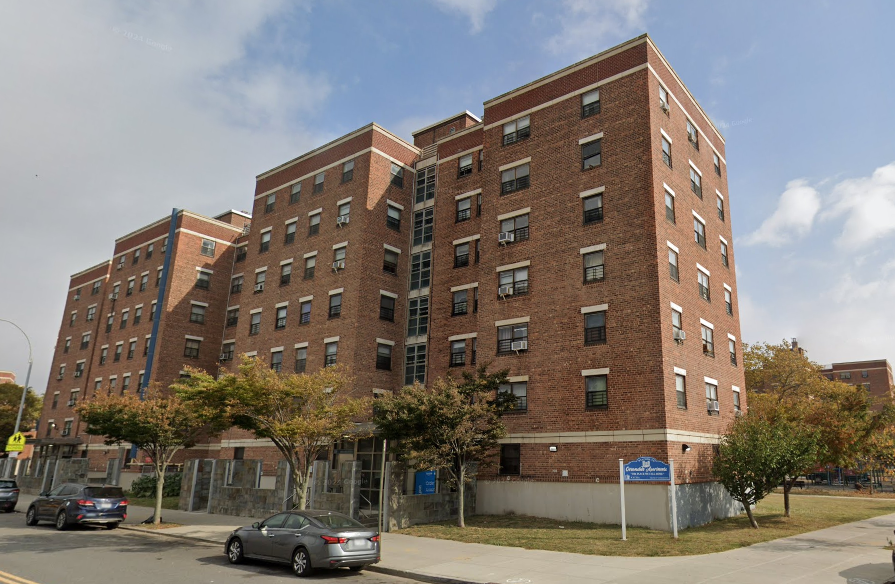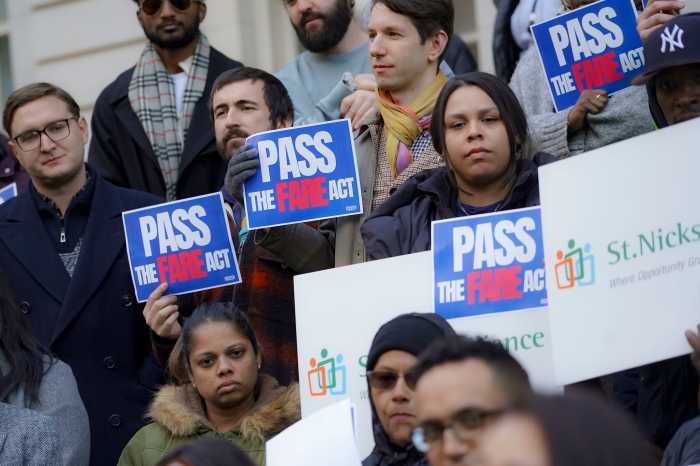Eviction rates at New York City Housing Authority (NYCHA) properties have surged under the Permanent Affordability Commitment Together (PACT) program, raising concerns about tenant protections, according to a new audit by NYC Comptroller Brad Lander.
The PACT program, designed to address decades of underfunding and disrepair in public housing, transfers some management responsibilities to private and non-profit partners to secure funding for critical renovations. While the initiative aims to tackle NYCHA’s estimated $80 billion capital needs, eviction rates at PACT-managed properties have more than tripled in the past year, now closely resembling citywide eviction rates.
NYCHA operates hundreds of residential buildings in Queens across 21 different developments, including 22 residential buildings in Astoria, 68 residential buildings in Jamaica, 51 residential buildings in the Rockaways, six in College Point, 125 in Flushing, 141 in Long Island City and 55 in Woodside.
The authority currently has 177,569 apartments in 2,411 buildings across the city in 335 conventional public housing and PACT developments.
According to the City’s Fiscal Year 2024 Mayor’s Management Report, NYCHA has converted 87 developments across the city to PACT, including 23,312 units housing 41,475 residents. NYCHA’s stated goal is to convert 62,000 units to PACT by 2028.
NYCHA’s Ocean Bay Apartments development in the Rockaways, consisting of 28 residential buildings, is the only Queens-based development to convert to PACT.
According to the audit, eviction filings and executions at PACT properties occurred at a faster pace than at other NYCHA developments. Evictions in PACT properties rose from 29 in 2023 to 91 in 2024—a staggering increase of over 300%. This brought the eviction rate at PACT properties to 0.57%, up from 0.18% last year, nearly matching the 0.60% rate in private rental units. In contrast, eviction rates at standard NYCHA properties increased from 0.01% to 0.12% during the same period, rising from 15 to 180 evictions.
The Comptroller’s office also criticized NYCHA for failing to ensure that PACT property managers adhered to pre-eviction outreach protocols and tenant protections. Auditors found that managers did not consistently make multiple attempts to contact tenants at risk of eviction, inform them of potential financial assistance, or use on-site social service providers to engage with residents. Additionally, managers often failed to establish repayment agreements or report all eviction-related activities, hindering NYCHA’s ability to oversee compliance.
Lander said that NYCHA must do more to ensure that PACT operators follow standard procedures and provide adequate support to tenants.
However, the audit acknowledged some positive steps taken by NYCHA, such as increasing resident involvement in the PACT process. NYCHA representatives now meet with tenants to explain the program and discuss community needs before renovations begin.
In response, a NYCHA spokesperson defended the program, highlighting its success in investing $7 billion to redevelop and renovate public housing units since its inception. “This unprecedented investment demonstrates our commitment to improving living conditions for NYCHA residents,” the spokesperson said.
Despite these improvements, the audit underscores the need for stricter oversight to protect tenants from the rising risk of eviction under the PACT program.
“After decades of federal disinvestment, PACT is one of the most successful long-term strategies for recapitalizing and preserving crucial affordable housing stock,” the NYCHA spokesperson said in a statement.
The spokesperson added that the Comptroller’s audit does not take NYCHA’s financial and operation challenges into account, stating that the audit only provides a “superficial assessment” of the program while providing no substantive recommendations.
“The fact remains that there have been very few evictions under PACT, and the program upholds resident rights and protections and provides households with ongoing social services and financial assistance to resolve existing rental arrears. NYCHA and its PACT program undoubtedly prioritize keeping New Yorkers housed, and any suggestion otherwise is misguided and false.”
NYCHA officials said the PACT program is one of the authority’s most effective tools for providing residents with comprehensive repairs and enhanced property management, stating that around 24,000 apartments have been converted to the program to date, with repairs made to more than 11,000 homes.
NYCHA officials also told QNS that the integrity of NYCHA buildings will continue to decline without the assistance of the PACT program.
Officials also contended that they made efforts throughout the audit process to provide the Comptroller’s team with additional information but said the feedback was not reflected in the final document, stating that the authority is “concerned” by the lack of context provided about resident rights and protections provided by the PACT programs. They noted that all PACT sites are protected by both federal and local protections under the program.




































